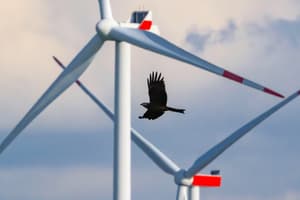The world would save at least $12 trillion by phasing out fossil fuels and shifting to renewable energy by 2050, according to a new analysis from the University of Oxford.
“Renewable costs have been trending down for decades. They are already cheaper than fossil fuels in many situations and, our research shows, they will become cheaper than fossil fuels across almost all applications in the years to come,” Doyne Farmer, an economist at Oxford and co-author of the study, said in a statement. “And, if we accelerate the transition, they will become cheaper faster. Completely replacing fossil fuels with clean energy by 2050 will save us trillions.”
For the study, researchers compared the predictions of leading energy models with data on the actual cost of solar, wind, and battery storage over the last several decades. They found that models have consistently overestimated the future cost of clean energy, with solar costs falling twice as fast as even the most optimistic projections. The swift drop for renewable energy “is different from anything observed in any other energy technologies in the past,” the authors write.
Extrapolating from recent trends, the new study takes a more optimistic view of future clean energy costs. Researchers modeled a scenario in which solar, wind, batteries, electric vehicles, and other green technologies displace fossil fuels by mid-century, with the world using 55 percent more energy than it does today. In that scenario, the shift to increasingly cheap renewable technologies would save upwards of $12 trillion, far more than if countries continue burning fossil fuels past 2050. The findings were published in the journal Joule.
“Our latest research shows scaling up key green technologies will continue to drive their costs down — and the faster we go, the more we will save,” Rupert Way, a postdoctoral researcher at Oxford and lead author of the study, said in a statement. “Accelerating the transition to renewable energy is now the best bet not just for the planet, but for energy costs too.”



